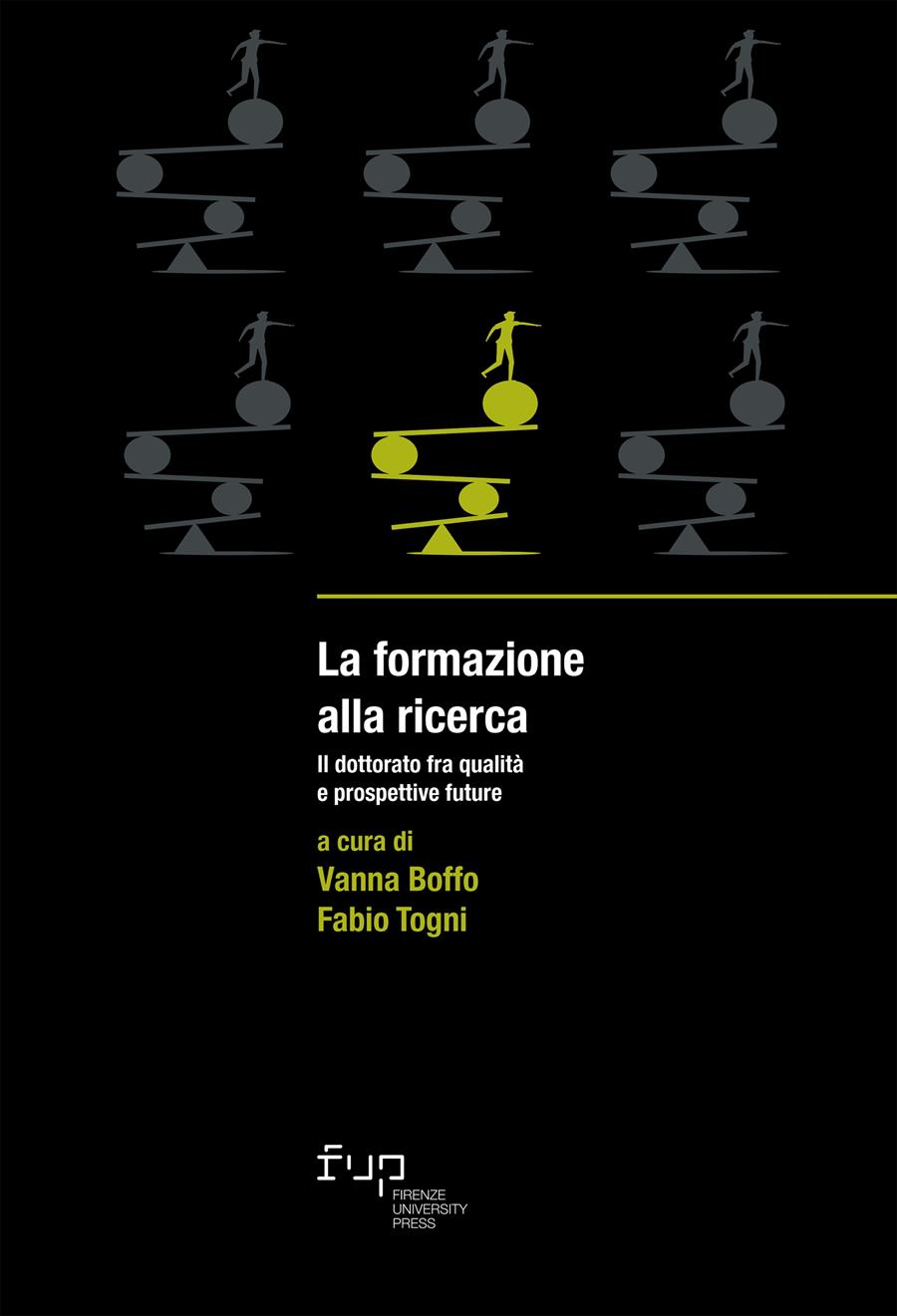- La formazione alla ricerca
- Edited by Vanna Boffo, Fabio Togni
Integrare l’entrepreneurship nella formazione universitaria: uno sguardo pedagogico attraverso tre contesti nazionali
- Letizia Gamberi
- © 2024 Author(s) |
- CC BY 4.0
- DOI: 10.36253/979-12-215-0504-7.08
The research presented in this study distinguishes itself through its pedagogical approach to entrepreneurship, aiming to transcend prevailing economicistic perspectives. It introduces the concept of “imprenditività” (Morselli 2016) as a broader formative dimension, focusing on the capacity to act on opportunities and ideas, transforming them into value for the development of personal and professional projects, rather than solely hard skills. Exploring the role of Higher Education in fostering entrepreneurial competencies for the university-to-work transition and beyond constitutes a fundamental point of inquiry in this research, offering new perspectives for educational innovation and the professional development of young adults. Through three case studies, various experiences of integrating entrepreneurship within university education in Ireland, Italy, and the United Kingdom have been examined.
- Keywords:
- Entrepreneurial education,
- Entrepreneurship,
- Higher Education,
- Lifelong learning,
- Value creation,
University of Florence, Italy - ORCID: 0000-0002-4134-7671
- Bacigalupo, Margherita, Kampylis, Panagiotis, Punie, Yves, e Godelieve Van den Brande. 2016. EntreComp: The Entrepreneurship Competence Framework. Luxembourg: Publication Office of the European Union. DOI: 10.2791/593884
- Bruyat, Chirstian, e Pierre-André Julien. 2001. “Defining the Field of Research in Entrepreneurship.” Journal of Business Venturing 16 (2): 165-80. DOI: 10.1016/S0883-9026(99)00043-9
- Commissione Europea. 2006. Oslo Agenda for Entrepreneurship Education in Europe. <https://ec.europa.eu/docsroom/documents/17642/attachments/1/translations/en/renditions/native> (2024-02-01).
- Fiore, Eleonora, Remondino, Chiara L., e Giuliano Sansone. 2021. Design e sostenibilità per la formazione imprenditoriale. L’esperienza del Contamination Lab Torino. Milano: Egea.
- Gibbs, Graham. 1996. “Institutional Strategies for Implementing Resource-based Learning.” In Resource-Based Learning, edited by Sally Brown, e Brenda Smith, 10-21. London: Routledge.
- Hook, Helen. 2021. Embedding Enterprise Education. 5 Steps to Embed Enterprise Education into any Degree Subject. <https://www.birmingham.ac.uk/university/hefi/news/2021/06/enterprise-education-curriculum-design-to-support-entrepreneurial-thinking> (2024-02-01).
- Iacobucci, Donato, e Alessandra Micozzi. 2012. “Entrepreneurship Education in Italian Universities: Trend, Situation and Opportunities.” Education + Training 54 (8/9): 673-96. DOI: 10.1108/00400911211274828
- Johannisson, Bengt. 2010. “The Agony of the Swedish School when Confronted by Entrepreneurship.” In Creativity and Innovation. Preconditions for Entrepreneurial Education, edited by Kjell Skogen, e Jarle Sjøvoll, 91-121. Trondheim: Tapir Academic Press.
- Lackéus, Martin. 2015. Entrepreneurship in Education: What, Why, When, How. Paris: OECD. <https://www.oecd.org/cfe/leed/BGP_Entrepreneurship-in-Education.pdf> (2024-02-01).
- MIUR. 2016. Contamination Lab. Linee Guida 2016. <https://www.istruzione.it/allegati/2016/CLab_Linee%20Guida.pdf> (2024-02-01).
- Montefalcone, Marco. 2018. Linee guida per lo sviluppo e il rafforzamento dei Career service. Roma: ANPAL Servizi.
- Morselli, Daniele. 2016. “La pedagogia dell’imprenditività nell’educazione secondaria.” Formazione & Insegnamento 14 (2): 173-85.
- Mortari, Luigina. 2012. Cultura della ricerca e pedagogia. Prospettive epistemologiche. Roma: Carocci.
- Norton, Stuart, e Leigh Sear. 2023. Embedding Enterprise and Entrepreneurship in Higher Education: An Advance HE Case Study Collection. Advance HE report.
- Nussbaum, Martha C. 2011. Non per profitto: Perché le democrazie hanno bisogno della cultura umanistica, traduzione di Rinaldo Falcioni. Bologna: Il Mulino.
- OECD. 2019. Supporting Entrepreneurship and Innovation in Higher Education in Italy. Paris: OECD Skills Studies.
- Parlamento Europeo. 2006. Raccomandazione del Parlamento Europeo e del Consiglio del 18 dicembre 2006 relativa a competenze chiave per l’apprendimento permanente. <https://eur-lex.europa.eu/LexUriServ/LexUriServ.do?uri=OJ:L:2006:394:0010:0018:it:PDF> (2024-02-01).
- Piazza, Roberta. 2015. “Educazione all’imprenditorialità, orientamento all’iniziativa: Entrepreneurship Education, Guidance to be enterprising.” Pedagogia Oggi 1: 72-90.
- QAA. 2018. Enterprise and Entrepreneurship Education: Guidance for UK Higher Education Providers. Gloucester: Quality Assurance Agency for Higher Education.
- Strano, Andrea. 2017. “Capacitare l’imprenditività. Agency tras-formativa per lo sviluppo e l’innovazione.” Tesi di dottorato. Università Cà Foscari Venezia.
- Williams, Nick. 2019. Engaging Students in Entrepreneurship Education: Thoughts on the Present Context and Future Challenges. Advance HE report.
- World Economic Forum. 2020. The Future of Jobs Report 2020. Geneva: World Economic Forum. <https://www.weforum.org/reports/the-future-of-jobs-report-2020> (2024-02-01).
- Yorke, Mantz. 2006. Employability in Higher Education: What It Is, What It Is Not. York: The Higher Education Academy.
Chapter Information
Chapter Title
Integrare l’entrepreneurship nella formazione universitaria: uno sguardo pedagogico attraverso tre contesti nazionali
Authors
Letizia Gamberi
Language
Italian
DOI
10.36253/979-12-215-0504-7.08
Peer Reviewed
Publication Year
2024
Copyright Information
© 2024 Author(s)
Content License
Metadata License
Bibliographic Information
Book Title
La formazione alla ricerca
Book Subtitle
Il dottorato fra qualità e prospettive future
Editors
Vanna Boffo, Fabio Togni
Peer Reviewed
Number of Pages
320
Publication Year
2024
Copyright Information
© 2024 Author(s)
Content License
Metadata License
Publisher Name
Firenze University Press
DOI
10.36253/979-12-215-0504-7
ISBN Print
979-12-215-0503-0
eISBN (pdf)
979-12-215-0504-7
eISBN (xml)
979-12-215-0505-4
Series Title
Studies on Adult Learning and Education
Series ISSN
2704-596X
Series E-ISSN
2704-5781
